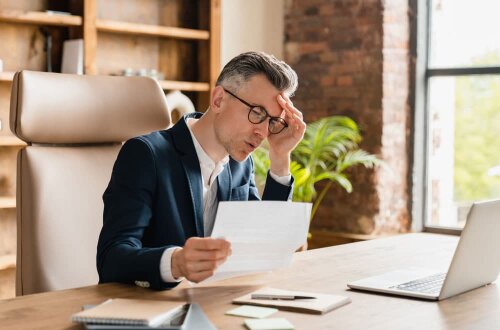Best Natural Resources Lawyers in Norway
Share your needs with us, get contacted by law firms.
Free. Takes 2 min.
Or refine your search by selecting a city:
List of the best lawyers in Norway
About Natural Resources Law in Norway
Norway is renowned for its riches in natural resources, including oil, gas, minerals, forests, and water. The country's natural resources are critical to its economy and have shaped its legal landscape. Natural Resources Law in Norway encompasses a wide array of legal disciplines, dealing with issues related to the exploration, extraction, and management of these resources. It is a field influenced by both local laws and international regulations, reflecting Norway’s commitment to sustainable development and environmental protection.
Why You May Need a Lawyer
If you're involved in activities related to natural resources in Norway, there are several instances where you might need legal assistance:
- Licensing and Permits: You may need help navigating the complex regulatory framework for obtaining necessary permits and licenses for exploration and extraction activities.
- Environmental Compliance: Ensuring your operations are compliant with environmental laws can be challenging, and a lawyer can help mitigate legal risks.
- Disputes Resolution: Legal conflicts may arise with governmental bodies, local communities, or other businesses over land use, resource rights, or environmental impact.
- Contracts and Negotiations: Lawyers can assist in drafting and negotiating contracts related to resource management, supply agreements, and joint ventures.
- Legislative Changes: Legal professionals stay informed about changes in legislation that may impact resource management practices.
Local Laws Overview
Understanding the key aspects of local laws is essential for anyone involved in the natural resources sector in Norway:
- The Petroleum Activities Act: Governs exploration and production of petroleum resources, emphasizing safety, resource management, and environmental protection.
- The Mineral Act: Regulates the exploration and extraction of mineral resources, balancing economic, environmental, and societal considerations.
- The Water Resources Act: Focuses on sustainable development and conservation of water resources, critical for hydroelectric power and other uses.
- The Nature Diversity Act: Aims to safeguard biodiversity and ensure the sustainable use of ecosystem services.
Frequently Asked Questions
What permits are required for natural resource extraction?
The permits required vary depending on the type of resource. Typically, you need exploration licenses, production licenses, and environmental permits.
How are indigenous rights considered in natural resources projects?
Indigenous rights are protected under Norwegian law, and projects must consider their impact on indigenous communities, often involving consultations and agreements.
What are the environmental liabilities for companies?
Companies are liable for preventing, mitigating, and compensating for environmental harm, with potential fines and sanctions for non-compliance.
How does Norway balance resource extraction with environmental protection?
Norway adopts a stringent regulatory framework ensuring sustainable resource management, involving impact assessments and adherence to international environmental laws.
Are there incentives for sustainable resource management?
Yes, the government offers various incentives for sustainable practices, including tax benefits and grants for environmental innovations.
What is the role of local communities in resource management?
Local communities have rights to participate in public hearings and consultations, influencing decision-making processes concerning natural resources.
Can foreign companies invest in Norway's natural resources sector?
Foreign companies can invest, provided they comply with Norwegian laws and regulations, and often require forming partnerships with local businesses.
What legal challenges are common in the natural resources sector?
Common challenges include regulatory compliance, land use conflicts, contractual disputes, and adapting to legislative changes.
How are disputes over natural resources resolved?
Disputes are typically resolved through negotiation, arbitration, or litigation, often involving specialized natural resources tribunals.
What is the role of the Norwegian government in resource management?
The government acts as both regulator and resource manager, ensuring activities align with national interests and sustainability goals.
Additional Resources
For more information and assistance, the following resources can be helpful:
- Norwegian Ministry of Petroleum and Energy: Provides guidance on policies and regulations for energy resources.
- Norwegian Environment Agency: Offers information on environmental regulations and sustainable practices.
- Sami Parliament of Norway: Represents indigenous Sami interests and provides resources for engaging with natural resource projects.
- Norsk Petroleum: A government source for data and analysis on the petroleum sector.
Next Steps
If you require legal assistance in the field of natural resources in Norway, consider the following steps:
- Consult with a Specialist: Contact a lawyer with expertise in natural resources law to assess your legal needs and options.
- Review Legal Documentation: Gather and review any relevant contracts, permits, or communications related to your situation.
- Research Legal Frameworks: Familiarize yourself with the specific laws and regulations that apply to your area of interest or concern.
- Engage with Local Authorities: Reach out to relevant governmental bodies or agencies for guidance specific to your needs.
Lawzana helps you find the best lawyers and law firms in Norway through a curated and pre-screened list of qualified legal professionals. Our platform offers rankings and detailed profiles of attorneys and law firms, allowing you to compare based on practice areas, including Natural Resources, experience, and client feedback.
Each profile includes a description of the firm's areas of practice, client reviews, team members and partners, year of establishment, spoken languages, office locations, contact information, social media presence, and any published articles or resources. Most firms on our platform speak English and are experienced in both local and international legal matters.
Get a quote from top-rated law firms in Norway — quickly, securely, and without unnecessary hassle.
Disclaimer:
The information provided on this page is for general informational purposes only and does not constitute legal advice. While we strive to ensure the accuracy and relevance of the content, legal information may change over time, and interpretations of the law can vary. You should always consult with a qualified legal professional for advice specific to your situation.
We disclaim all liability for actions taken or not taken based on the content of this page. If you believe any information is incorrect or outdated, please contact us, and we will review and update it where appropriate.
Browse natural resources law firms by city in Norway
Refine your search by selecting a city.















